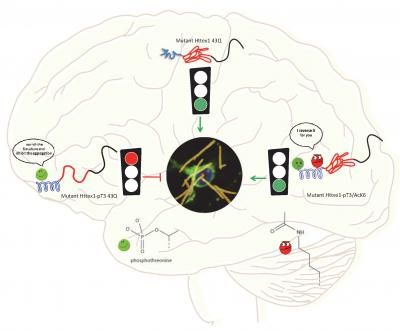Greater Accuracy in Gauging Blood Coagulation
Fluorogenic Peptide-Based Substrates for Monitoring Thrombin Activity
thrombin plays a key role in various pathologies of the haemostatic system. Overexpression of thrombin can result in thrombosis, whereas its underexpression might lead to haemophilia. Therefore, accurate monitoring of thrombin activity is crucial for determining the proper treatment of a given patient, as this correlates with the ability of blood to coagulate. A tool for monitoring the activity of thrombin over time is the so-called thrombin generation test (TGT).
In a collaborative project headed by Floris Rutjes (Radboud University Nijmegen, Netherlands), novel thrombin-specific fluorogenic peptides were developed for accurately determining thrombin concentrations by the TGT. Adding such a peptide substrate to a clotting plasma sample results in its hydrolysis by thrombin, thereby releasing the fluorophore. Spectrophotometric measurement of fluorophore release increases the sensitivity and thus accuracy of the TGT, yielding various essential coagulation parameters. The use of fluorogenic peptides in combination with the TGT is expected to find broad application in the field of haemostasis and thrombosis.
Original publication
Other news from the department science

Get the analytics and lab tech industry in your inbox
By submitting this form you agree that LUMITOS AG will send you the newsletter(s) selected above by email. Your data will not be passed on to third parties. Your data will be stored and processed in accordance with our data protection regulations. LUMITOS may contact you by email for the purpose of advertising or market and opinion surveys. You can revoke your consent at any time without giving reasons to LUMITOS AG, Ernst-Augustin-Str. 2, 12489 Berlin, Germany or by e-mail at revoke@lumitos.com with effect for the future. In addition, each email contains a link to unsubscribe from the corresponding newsletter.























































